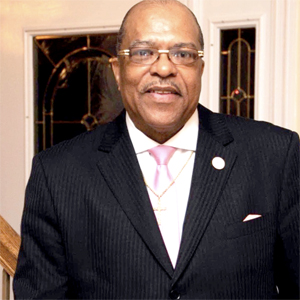(WHAT HILKIAH FOUND IN THE TEMPLE)

Scriptural text: 2 CHRONICLES 34:15-22, 26-2
KEY VERSE “I “Hilkiah answered and said to Shaphan the scribe. I have found the book of the law in the house of the Lord. And Hilkiah delivered the book to Shaphan. (2 Chronicles 34:15 KJV)”
INTRODUCTION: The events in this passage unfolded against a backdrop of spiritual darkness and emerging hope in ancient Judah, as described in verse 15. Occurred in approximately 622 BC, during the eighteenth year of King Josiah’s reign, marking a pivotal moment in Israel’s religious history. The setting is Jerusalem, the capital of Judah, in the temple of the Lord, which was undergoing restoration at the time. Josiah ascended the throne at the age of eight, following his father’s assignation. When he was sixteen years old, Josiah began to seek the Lord.t
Four years later, he set out to eradicate the idolatry that was rampant in both Judah and parts of the former Northern Kingdom of Israel. By purging the land of idolatry, restoring the temple, and emphasizing the proper observance of the Law, Josiah set an exemplary model of faithfulness to God.
Discovering the Book of the Law (2 Chronicles 34:15-18). During King Josiah’s reign, while renovating the Temple, Hilkiah, the high priest, found the “book of the law of the Lord given through Moses” in the Temple. This is a book of God’s truth and its power to transform lives. This book likely contained the Book of Deuteronomy, or portions of the Pentateuch. The realization that physical access to Scripture does not guarantee spiritual engagement with it. The high priest read and recognized the book and took it to Shaphan, the king’s “secretary” or scribe, who supervised the Temple restoration. For generations, the people in Judah had lived without the Lord’s guidance. God had given them the Law to govern their lives as his covenant people. Likewise, the Lord has given us “all Scripture” (2 Tim 3:16-17) to guide our thinking and acting as His people living under the New Covenant.
Josiah’s Convention and Confession (2 Chronicles 34:19-22). King Josiah’s response to hearing God’s word read aloud by Shaphan, immediately “tore his clothes”. This was a traditional expression of mourning, grief, distress, and repentance. Josiah was convicted as he recognized his nation’s spiritual and moral failures – they had forsaken the Lord and His covenant with them. The king realized that “the wrath of God” was already being “poured out” on him, the remnant of Israel, and the people of Judah. Because their “ancestors did not keep the word of the Lord,” The king desired to know God’s will after the discovery of the book of the Law, which highlights his genuine concern for his nation and his commitment to restoring the covenant between God and His people. Josiah’s response to what he heard in the book of the Law was one of brokenness and conviction. The King sent Messengers to the prophet Huldah. The biblical text explains that Huldah’s husband, Shallum had responsibility for the “wardrobe” (the priestly or Levitical garments ) at the temple.
As king, Josiah’s repentance served as a model for the people of Judah, and his spiritual leadership set the tone for the entire nation’s potential renewal. Josiah’s personal humility and sorrow over Judah’s sin were transformative. This passage also highlights the importance of divine guidance through God’s Word and His Spirit for God’s people and their community. It encourages believers to consider what they know of God’s Word, reflect on their obedience to Him, and respond in confession and repentance whenever they become aware of disobedience and unfaithfulness to the Lord.
Huldah’s Prophetic Pronouncement (2 Chronicles 34:26-27). In speaking to the emissaries, three times Huldah declared, “Thus says the Lord. ”Huldah spoke for God, and the Lord’s message was for the king. Josiah sought God’s will for his life and his nation. The prophet was a vehicle for divine intervention. The Lord commended Josiah’s attitude; his “heart was penitent,: The Hebrew word translated “penitent” means “tender” or “soft.” Josiah’s example shows the value of actively seeking God’s direction and guidance through prayer, Scripture, and wise counsel. God’s promise reveals that He responds to sincere repentance with mercy, and grace to those who seek Him with a contrite heart.

